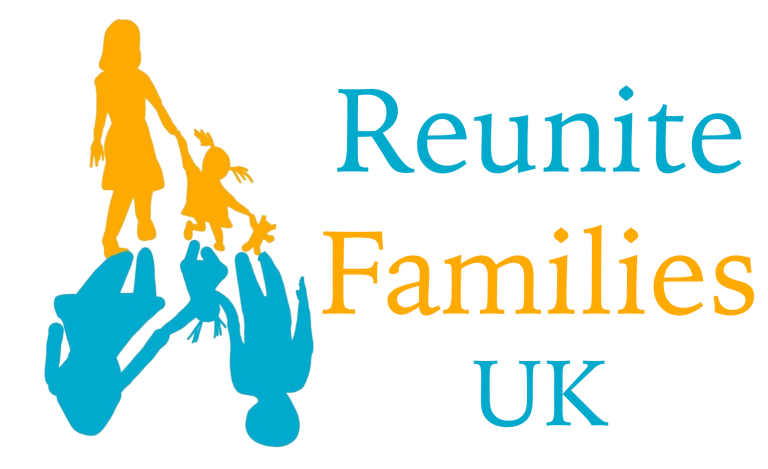Roundup of various pieces of immigration news from around the web which may be of interest to our members and supporters:
‘Fears over skills as visa application times double for spouses.’ (Personnel Today)
‘Spouse applications for people coming to work in the UK are being delayed, leaving immigration specialists concerned that the extra waiting times for decisions could exacerbate the skills crisis.
Processing times at the Home Office for those wishing to join family working in the UK are have doubled, leaving those with job offers in the UK having to renegotiate starting dates.
In addition, organisations that support partner applications for British employees returning from overseas with a non-British partner may see requests for delaying their return to the UK.’
This highlights the recent lived experience of many of our members going through the process, causing mental anguish (see our recent campaign for Mental Health Week), as well as the often dismissed counterproductive economic impact of the spouse visa rules and bureaucracy. It’s also my considered opinion that the Brexit backlog rather than Covid or Ukraine are what’s really behind this – even before Covid, there were reports on various forums of long delays as EU citizens and their families as well as non-EU citizens fought their way through the bureaucracy – but of course one suspects that with the current leadership being so invested in the Brexit myth, it’s not politic for anyone to say so.
Related : ‘Delays in spouse visas as Home Office staff manage Homes for Ukraine workload’ (Kent Online). A local news piece highlighting the anguish caused by these delays. Again it’s worth questioning the real issue here – as there was evidence that the delays were happening even before the Russian invasion of Ukraine. See comments above re-Brexit.
‘Britain is now a high-immigration country and most are fine with that.’ (Financial Times)
It’s always been a myth that British people have been anti-immigrant – but a very vocal section of opinion-formers has been pandered to by populist politicians for the last 10 years or so, or possibly even longer (some of us have long enough memories to recall some of the New Labour rhetoric). There is a silent majority in the UK, and it’s not anti-immigrant. That said, recent news from Ukraine and other refugee crises, as well as the plight of UK citizens with overseas-origin families, may together have contributed to shifting opinion.
‘Children can now apply for a waiver of citizenship fees.’ (Free Movement)
Definitely useful to many given recent campaigns around the registration of children and various hurdles associated with this. Those in this category may want to check out the excellent Project for the Registration of Children as British Citizens, campaign and newsfeed (which also talks about this).
‘Windrush scandal caused by ‘30 years of racist immigration laws’ – report.’ (Guardian)
‘The origins of the Windrush scandal lay in 30 years of racist immigration legislation designed to reduce the UK’s non-white population, according to a leaked government report.
‘The stark conclusion was set out in a Home Office commissioned paper that officials have repeatedly tried to suppress over the past year.’
Unfortunately this doesn’t come as a surprise but interestingly it does lend historical context to what has been going on, under both Labour and Conservative governments.
The Movement for Justice is still campaigning for Windrush families, as is the Windrush Lives victim support network.
‘£11k in extortionate visa fees to have the right to live in the UK’ (Livia Barreira for Migrant Voice).
Great blog piece highlighting the crazy costs of the entire immigration process. Making these costs affordable is one of our main priorities (one of our 3 S’s – slash the costs, scrap the minimum income requirement, simplify the rules).
‘Over 500 Ukrainian children stuck waiting for UK visa decision’ (Guardian).
‘More than 500 Ukrainian children who fled the war without their parents are stuck waiting in limbo across Europe after applying to the Homes for Ukraine scheme, sources working closely with the Home Office say.’
Positive Action in Housing has done an excellent job of raising various concerns around the UK government’s handling of the refugee crisis and housing. Check out their Room for Refugees site.
‘Why do people come to the UK? For family reasons’ (gov.uk)
Interesting piece of analysis from within the halls of government.
I’d encourage people to check the stats themselves of course and crunch them in ways which are useful to you – here are some great sources :
https://www.gov.uk/government/statistical-data-sets/managed-migration-datasets#entry-clearance-visas-granted-outside-the-uk tab Data – Vis_D02) + https://www.gov.uk/government/statistics/immigration-statistics-year-ending-march-2022
For an example of how to check the government’s statistics to find something interesting, check out this blog post.
‘Couple face Belarus prison and loss of surrogate child amid UK visa delays.’ (Guardian)
A disturbing story highlighting the human cost of bureaucracy – especially in the current geopolitical situation.
‘Visa scheme for graduates from top 50 non-UK universities is launched.’ (Guardian) Also covered by the BBC and CNBC.
Mixed feelings about this – of course this will help some people (although really, family reunion should not depend on something like this, and the elitist edge to this is hardly going to do much to close the class divide), but I would caution those looking to apply for such a scheme to look to the recent experiences of those naturalised British citizens – often professionals – who now cannot sponsor adult dependant relatives due to the sudden rule changes a few years ago, the sudden removal of post study work visas during the height of the hostile environment in 2012 (although this returned a few years later), and ask themselves where their trust should really be placed.
‘Call to review rules on dependent relatives.’ (British Medical Association).
More on the ADR issue, which affected many professionals with established UK careers. Related : ‘NHS GP could be forced to split up elderly parents thanks to hostile Home Office rules’ (i news).
‘The UK wants to send refugees to Rwanda. Is that legal?’ (Christian Science Monitor)
Some critical international coverage of the UK’s Rwanda scheme, which we should all be concerned about.
‘Risk of LGBT refugees sent to Rwanda facing persecution over sexual orientation is ‘justified’, says Home Office’ (Independent).
‘The Home Office has admitted that LGBT+ refugees who are deported to Rwanda could be persecuted on the basis of their sexual orientation – but it plans to send them there anyway.’ This is extremely disturbing.
‘Afghan man who came to UK as child tried to take his own life after being threatened with removal to Rwanda’ (Independent).
Overall the Rwanda scheme seems to be ill-conceived and borne of callous depravity, as has been the case with so much pandering to the lowest common denominator. Though once again this is being challenged from many quarters.
‘Legal campaign forces government to delay deportations to Rwanda’ (Morning Star).
‘Rwanda: More than 160 groups call on UK Government to scrap asylum plans’ (The National).
‘Aya, a Syrian teenager in Denmark, is threatened with deportation to a place she cannot remember. Under a hostile immigration system, Denmark has begun trying to send back refugees from Damascus, claiming the city is now safe under the dictatorship of Bashar al-Assad. Aya’s brothers are allowed to stay, since if they returned they would have to join the military. ‘ (Guardian)
The UK is not the only country in Europe with a ‘hostile environment’ – for families at least, according to a recent MIPEX study, Denmark came below the UK (and in some ways, the policies implemented during Theresa May’s tenure as Home Secretary were modelled on the Danish experience). The activist group Aegteskab Uden Graenser (Marriage Without Borders) advocates on behalf of international families in Denmark, and you can read something of the Danish experience here.
… Finally –
Duolingo: Statement on Ukraine.
Duolingo, the world’s most popular language learning platform (and one of my web obsessions) is donating ad revenue from those learning Ukrainian to Ukrainian relief efforts. Presumably this includes practicing the alphabet/script as well as the language itself. In other words, you can grow your brain for free and still contribute to a good cause (Ukrainian refugees). What an excellent corporate initiative. (And the app is of course available to anyone, anywhere in the world, regardless of national origin).

